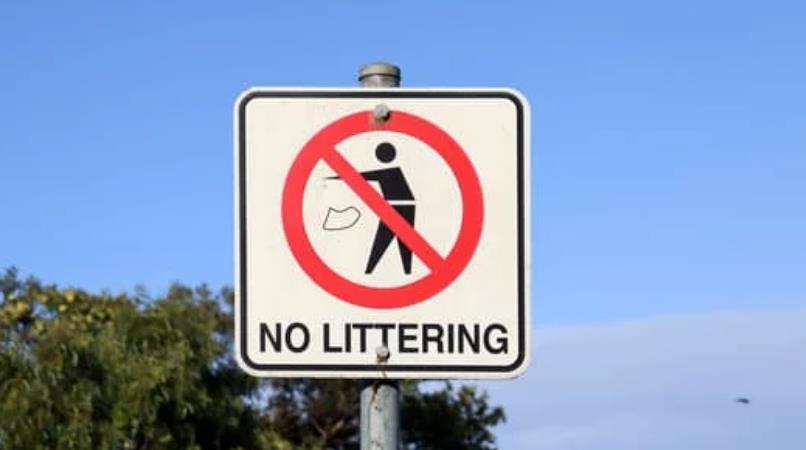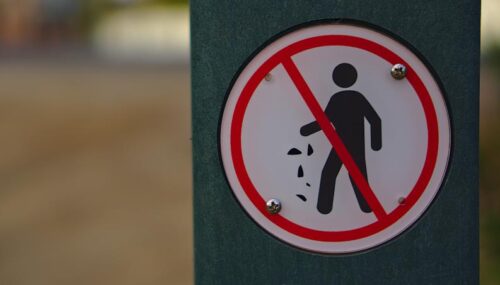
How Can the Effects of Littering Be Prevented?
What is Littering?
Litter is any kind of trash thrown in small amounts all over the surroundings, especially in places where it doesn’t belong, and it will affect nature. With time, it stores more waste in all places and heaps up. The practice is against the law because it costs municipalities millions of pounds annually in cleanup costs.

The most frequently littered items are:
- Cigarette butts
- Old perfume bottles
- Chewing gum wrappers
- Old Toys
- Broken electrical equipment parts
- Broken glass
- Alcoholic waste
- Food waste
- Construction Wastage
- Wood waste
Even practices such as leaving items overflowing near a dustbin by putting more waste in the dustbin, throwing waste items from vehicles, and abandoning items or wrappers by the roadside qualify as littering. Littering is more dangerous and should not be taken lightly because it impacts the environment in multiple ways by affecting nature.
How Litter Will Affect?
The consequences of littering will be impacting wildlife, the environment, ecosystems, public health and the overall aesthetic appeal of our surroundings. This will be caused by laziness and unawareness of nature and cleanliness.
Causes Pollution

As litter degrades, more chemicals and microparticles are released, which will create different types of pollution. These chemicals aren’t natural to the environment and affect the whole of nature in different ways, therefore causing a number of problems. For example, cigarette butts will contain some chemicals, such as arsenic and formaldehyde. These poisons can make their way into the soil and water sources like rivers, oceans, etc., which negatively impact both humans and animals with these harmful chemicals. In fact, more than 60% of water pollution is attributed to litter all over the world.
Kill Wildlife Animals
Animals are one of the innocent victims affected by litter every day in the world. Researchers estimate that more than one million animals die each year after ingesting or becoming entrapped in improperly disposed trash. Each year, over 100,000 dolphins, fish, whales, turtles and more drown after becoming entangled in or digesting plastic litter in the water by putting more waste particles in the water.
Spread Disease
Improperly discarded trash is a breeding ground for bacteria, creating more diseases and affecting living beings’ immune systems. Litter will spread more diseases, parasites, and viruses through two methods: direct and indirect contact. Germs can be transmitted directly by physical contact or by coming into contact with litter. This will happen by picking up and touching or accidentally injuring themselves on improperly disposed trash in any dirty places.
Some of the bacteria and parasites can also be transmitted to humans indirectly by spreading in the air and linking with insects like mosquitoes through an affected vector. Vectors like animals or insects that come into contact with contaminated litter and then transmit those contaminants to humans affect the immune system and create more diseases that will be transmitted through humans as well.
How Can the Effects of Littering Be Prevented?
Create Awareness
The easiest way to reduce littering is to increase awareness among all people in the world. In the awareness, they need to understand all the harmful effects of littering and how it affects the environment and public health. Educating people about proper waste management and increasing recycling can also help reduce littering.
Provide Waste Disposal Facilities

Lack of proper waste management facilities is the primary cause of littering. Governments and local authorities must provide waste disposal facilities like providing more dust bins in a set of places in public areas such as parks, streets, playgrounds, beaches and other mort storing litter. It will encourage people to dispose of waste properly and reduce littering in public places.
Improve Recycling
Recycling is an effective way to reduce litter and protect the environment from waste particles. Recycling not only reduces waste but also protects natural resources by reducing waste-free society and pollution in waters and land.
Implement Strict Laws
Governments and local authorities can implement strict laws and regulations to discourage littering in their surroundings. Some fines, imprisonment, and community service can be imposed on people who litter in public places. It creates a sense of responsibility and awareness among people. Also encourages them to dispose of their waste in the proper manner.
Organize Community Clean-up
Community clean-up drives can be organized and used to clean public places and reduce littering in public places. Governments and NGOs can collaborate with local communities to organize such events to provide clean surroundings. It is used to clean up public areas and create awareness about littering and its harmful effects.